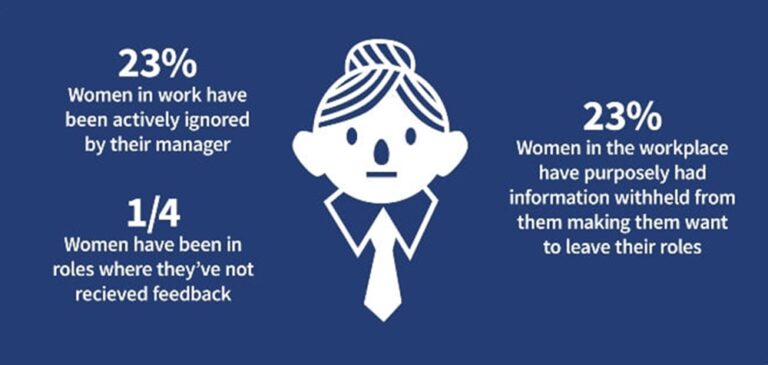Leading law firm, Irwin Mitchell, has recently conducted a nationally representative study into the ‘trend’ of quiet firing.
Quiet firing is defined as behaviour or actions by an employer that make employees feel like they’re no longer wanted, forcing them to quit. However subtle, this gas-lighting behaviour can have concerning consequences for an employee’s confidence, performance and livelihood.
This is different to ‘quiet quitting’, a ‘phenomenon’ which came in response to pandemic burnout that saw employees only doing the work they’re paid to do – shunning extra work and going the extra mile.
After surveying 2475 people, Irwin Mitchell found:
- 23% of women in work have been actively ignored by their manager
- 25% of women have been in roles where they’ve not received feedback
- 23% of women in the workplace have purposely had information withheld from them making them want to leave their roles
- 34% of the UK have experienced workplace bullying “disguised” as banter
This poses serious concerns around whether employees can identify unlawful behaviour in the workplace which gives them the right to bring employment claims such as discrimination and constructive dismissal claims. Irwin Mitchell wants to raise awareness of the impact such bad behaviour can have on employees and the important measures managers should put in place to avoid ‘quiet firing’.
By asking respondents to detail whether they’ve experienced a number of inappropriate work-place behaviours, Irwin Mitchell can reveal that being made to feel uncomfortable by someone at work was the main reason women left their jobs. A quarter of women also said that their role had been changed without proper explanation or consultation, creating an unnerving and uncertain working environment. This, alongside being excluded, looked over or ignored, can force women from their jobs.
‘Lack of feedback’ was the predominant gripe that men had with their current or previous place of work. A worrying lack of communication from managers is impacting large groups of the workforce. Other management failings for employees include:
- Being ignored by your manager
- Stopping internal communication
- Being left out of socials
- Being left out of meetings
- Being passed over for promotion
- Having information withheld
- Being undermined in a meeting
On the whole there are a lot of excellent examples of great businesses looking after employees but sadly there are some examples where this isn’t the case.
Deborah Casale at Irwin Mitchell had this to say about the findings, “There really is no excuse for treating employees in this way. If there is a problem with a member of staff, employers should deal with the issue rather than making the individual feel so uncomfortable or undervalued that they leave.
The widespread knowledge gap among employees around quiet firing is concerning. This type of behaviour can form grounds for constructive dismissal if it breaches the implied term of trust and confidence in the employment relationship and the employee has more than two years of service. Employees should be aware of their legal rights in these situations and should take advice at an early stage to protect their position. Likewise, employers need to be aware of the dangers of quiet firing.
If the employee is being discriminated against or is being treated badly because they have blown the whistle, there is no requirement for two years of service. There are strict time limits of three months less one day to bring claims in the Employment Tribunal, so employees need to understand their rights at the outset. Employees may also wish to submit grievances or negotiate a settlement to leave.”
Additional findings include:
- Students are most aware of quiet firing
- Creative and media industries are most aware of quiet firing
- Beauty and wellbeing are the industries least aware of quiet firing

